No-one wants to hear that their flight’s been cancelled or delayed so we’ve put together some hints, tips and things to remember if you’re caught with flight delays.
Avoid the Stress | What to do if your flight is delayed or cancelled | Airline Customer Service Numbers | What are my passenger rights?
Why does snow disrupt airports? | Traveling with the kids | Trouble getting to the airport
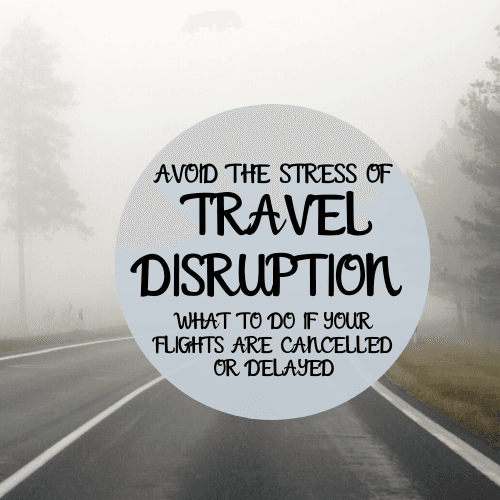
The UK suffers severe delays to outbound and inbound flights most of the time when snow is predicted. One of the things you can do to make your journey easier is to try to keep the whole experience as stress-free as possible. We have a few tips on how to minimise stress when travelling:
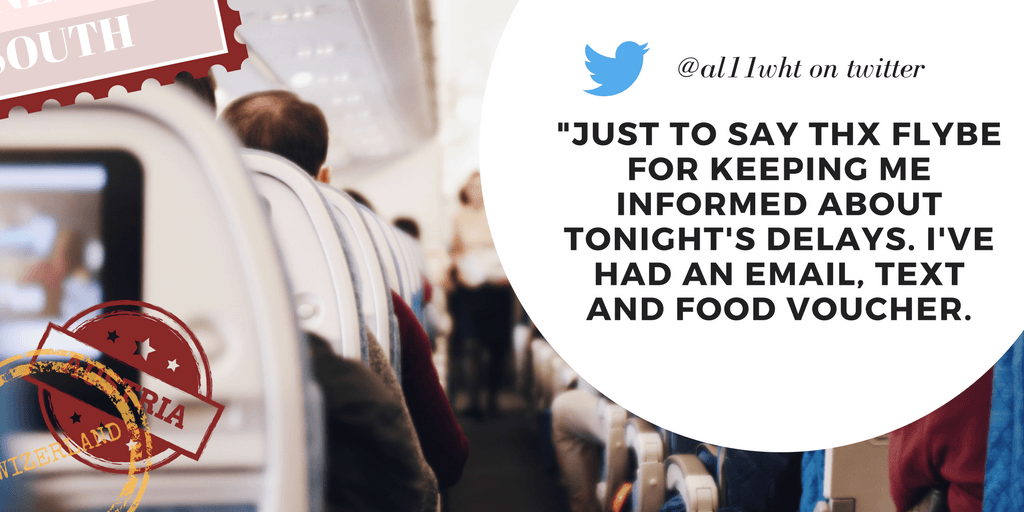
Check out this handy tool that calculates how much compensation you could be due!
Did you know there's a different way to claim flight delay compensation? Colibra believes you shouldn't have to wait for weeks, if not months, for a payout which is why they can arrange one to be paid to you within 24 hours of landing at your destination.
If your flight has been delayed by more than 1 hour, you will be eligible for €20-€100 back. All you need to do is register and upload your boarding pass before your flight and Colibra will sort the rest. Easy as that!
Take a look at what you should do, based on how long your scheduled delays are. Find out more on 1, 2, 5, 9 to 24-hour delays as well as cancellations below.

Your airline must give you the option of rebooking an alternative flight or requesting a refund. If you’re abroad, you’ll want to check for alternative flights to get home as quickly and safely as possible.
Find the shortest queue to rebook your flight and call the customer service line while you’re queuing up, you may be served on the phone before you reach the end of the queue which will get you on your way faster.
Top tip: if you know you’ll have to stay overnight, why not call up a local hotel while you’re in the queue as well - when a flight’s cancelled, rooms will be snapped up fast!
Getting to the end of the queue: if you don’t ask, you won’t get so if you’re forced to stay overnight, ask if your airline will reimburse you.
If getting an alternative flight is not an option then you should consider alternative modes of transport. For example, you could consider hiring a car and driving to your destination.
Top tip: Some airports rely on train and/or ferry transfers so if you’re travelling to a neighbouring country, your airport may offer you a ferry-alternative such as Exeter to the Channel Islands. Or you can look into ways around it yourself. For example, from London to Paris, you could take the Eurostar.
If you’re still in the UK, it’s worth checking the day’s traffic from the airport with your airline. If it’s been delayed due to extreme weather, none of the airlines may be flying so you might want to stay at home instead.
Getting to Manchester doesn’t have to be a wasted trip if you decide not to fly, there is lots to do in and around Manchester with the family.
Read below for advice on what compensation you could receive, how to rebook a new flight, what flight credit is and what your passenger rights are.
Bear in mind that If the flight is cancelled due to reasons out of the airline’s control they will not pay for cancellation of your accommodation or cancellation of any other arrangements - this includes the weather. However, if you’ve taken out travel insurance then you should be able to claim back most of your expenses from them.

Here's your handy address book of airlines running from Manchester Airport, available to call if you find yourself in a difficult situation because of delays and/or cancellations.
Bear in mind that if you call an international number or are using your phone abroad, you may be charged extra by your network provider.
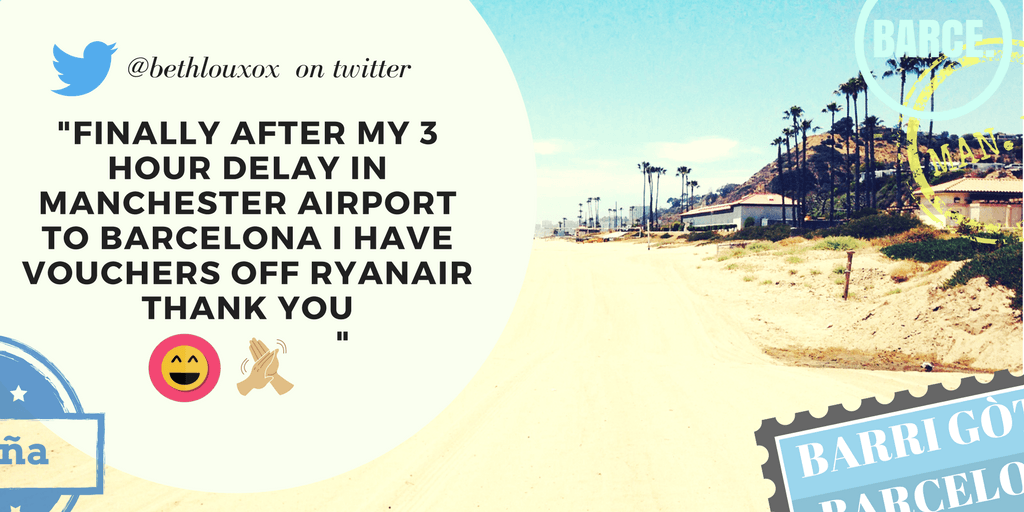

Airports are disrupted due to snow because of the additional processes that need to be undertaken to make sure planes are safe to fly. Roads and runways need to be cleared of snow and ice and planes must be de-iced.
A plane must be completely de-iced before it can take off as any ice on the plane affects the aircraft wings and fuselage which makes the planes more difficult to control. In severe cold temperatures planes must take off as soon as they are de-iced to prevent ice from building up again, therefore this causes delays as de-icing cannot be done in advance at the start of the day.
The runways and roads must also be snow and ice-free which the airport usually clears. If the airport is inflicted with heavy snow then the airport may have to be closed while the airport is cleared of all snow. Planes cannot take off when there is any snow on the ground.
Larger airports like Heathrow and Gatwick are more impacted by severe weather than smaller airports as they have so many flights that a delay of a few hours causes a huge backlog of flights.
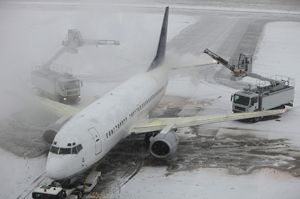
You may not be lucky enough to be stranded at Frankfurt's international airport where four clowns have been hired to perform in the terminals but there are still plenty of ways to keep the kids entertained in the midst of all the chaos and avoid any more stress.
Most major airports will have unsupervised play areas that young children can use as well as there being shops to browse and other amusements throughout the terminal. If you're willing to pay to enter an airport lounge then there will be toys, games, an arcade and magazines available. Take a look at the facilities at Manchester in advance.
You can't go wrong with the classics, a game of "I spy" requires nothing but a keen eye and can be an excellent way of keeping children amused if you need to spend a minute sorting out your travel arrangements.
Through a child's eyes, an airport can look like one big playground. As long as there is supervision letting the kids ride the escalators up and down and play with the trolleys may get rid of the pent up energy they may have accumulated from all the waiting around.
The effects caused by severe weather conditions is not only likely to impact airport flight schedules but can also cause delays and disruptions throughout the major transport networks across the UK. Striking action can also lead to disruptions which although usually localised to certain organisation and locations can still affect your journey.
Unfortunately, this can and does lead to many passengers having a very stressful time getting to the airport, with some failing to make their flight altogether. The key to avoiding these problems however lays simply in planning your journey effectively.
In situations where there is snow and ice drivers are urged to keep plenty of distance between vehicles and drive slowly to ensure they're always completely in control of their vehicle. Trains may also be travelling at slower speeds than usual. Taking the extra time it will take to reach your destination into consideration when planning your journey will help ensure you make it in plenty of time.
Keeping yourself informed will play a major part in streamlining your journey. Utilise news websites, Twitter and radio so your up-to-date with the latest news regarding your method of transportation which should help you avoid any problematic routes.
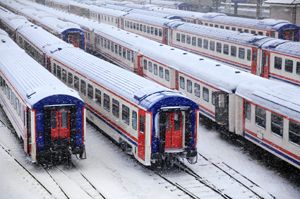
There can sometimes be cases where it just won't be possible for you to make your flight, for example, weather that is so severe that it is unsafe for you to travel. In such circumstances where no one is really at fault, you should check your flight's status and speak to your airline as it's more than likely to be affected if the weather conditions are that bad or alternatively look to your travel insurance for compensation.